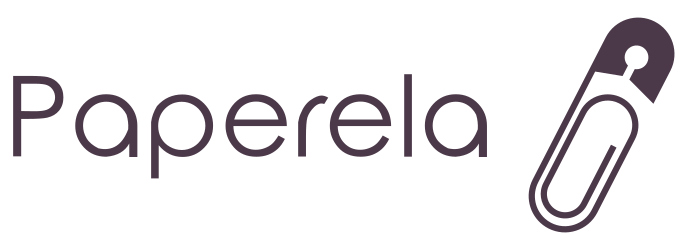
Why Getting Loans From Your Bank Is Tougher Than Ever

Banks are ‘purposefully’ making the process of loans difficult. And there are multifarious reasons. New regulations are continually being introduced to enhance financial stability and consumer protection. These changes, though well-intentioned, often result in increased operational costs for banks and stricter lending criteria.

Monstera / Pexels / A new study reveals that banks are ‘purposefully’ making it hard for consumers to get loans.
For instance, a law might require more extensive vetting of loan applicants, translating into a more complex and lengthy loan approval process. While these regulations are designed to safeguard the financial system and protect borrowers, they also make it more challenging for banks to offer loans as freely as they used to. As a result, borrowers might find themselves jumping through more hoops to secure a loan.
Rising Funding Costs Tightening Lending Practices
The cost of doing business for banks, particularly in terms of acquiring capital, has seen a notable increase. This situation is akin to a business facing rising supply costs: It inevitably affects the pricing and availability of the final product.

Ono / Pexels / For banks, higher funding costs mean they have to be more cautious about lending.
This increase in costs can stem from various factors, including higher interest rates from central banks or more expensive borrowing terms from other financial institutions. The ripple effect is felt by consumers and businesses seeking loans, as banks adjust by tightening their lending criteria and raising interest rates on loans.
A Shift Towards Lower Risk Tolerance
In recent years, banks have become more like cautious investors, increasingly wary of taking risks. This shift is a direct response to past experiences with bad debts and loan defaults, which have prompted a reevaluation of risk assessment strategies.
What this means for borrowers is a banking environment that is more stringent about credit histories, income stability, and collateral requirements. Those with less-than-stellar credit scores or irregular income patterns may find it particularly challenging to secure loans under these tightened conditions.
The Uncertain Economic Outlook Influencing Lending Decisions
The global economy is currently experiencing waves of uncertainty, influenced by factors like geopolitical tensions, market fluctuations, and lingering effects of global crises. For banks, this uncertainty is akin to navigating a ship in foggy waters – caution becomes paramount.

RDNE / Pexels / Economic uncertainty is the leading reason why banks are reluctant to offer loans.
This economic unpredictability makes banks hesitant to extend loans, especially in sectors or to individuals deemed higher risk. They are more inclined to safeguard their assets in the face of potential economic downturns. For borrowers, this translates to more challenges in loan approval, especially for substantial amounts or ventures perceived as risky.
The Pandemic’s Long-Lasting Impact on Banking Practices
There is no doubt that the COVID-19 pandemic has left an indelible mark on the global banking sector. This crisis has reshaped how banks perceive and manage risk. Initially, many banks implemented measures like loan deferments and modifications to aid borrowers. However, as the world transitions to a post-pandemic phase, banks are reassessing their risk models in anticipation of potential future crises.
Parting Thoughts
In today’s ever-changing financial landscape, understanding the complexities behind securing a bank loan is crucial. From legislative changes and rising funding costs to a shift in risk tolerance and the uncertainties of the economic outlook, these factors collectively contribute to a more challenging loan acquisition environment.
More in Financial Planning
-
`
Leo DiCaprio’s Star-Studded 50th Birthday Bash
Leonardo DiCaprio’s 50th Birthday celebrations marked a significant milestone in the life of this Hollywood icon. Known for his legendary performances...
November 19, 2024 -
`
What Does Budget 2024 Mean for UK Business Owners?
In the much-anticipated Autumn Budget of 2024, UK Prime Minister Sir Keir Starmer rolled out some big changes affecting both individuals...
November 13, 2024 -
`
Hollywood Stars Who Stole the Show at the 2024 LACMA Gala
Blake Lively Stuns in Tamara Ralph Couture “It Ends With Us” star Blake Lively made a dramatic entrance at the 2024...
November 12, 2024 -
`
How Can You Leverage Higher Income Limits for Capital Gains Tax Benefits?
As tax laws evolve, understanding how to leverage higher income limits for the 0% capital gains bracket becomes essential for savvy...
November 7, 2024 -
`
Investor David Einhorn Thinks Peloton Can Be Worth Five Times More IF It Cuts Costs
David Einhorn, founder and president of Greenlight Capital, has a bold vision for Peloton. He believes the struggling fitness company could...
November 7, 2024 -
`
How Interactive Matter Maps Improve Legal Research and Planning
Interactive matter maps have transformed legal research and planning by simplifying how law firms manage complex matters. These tools help legal...
November 1, 2024 -
`
The Role of Global Mobility in Business Planning for 2025
In an era where the competition for top talent is fierce, the significance of global mobility in business planning cannot be...
November 1, 2024 -
`
Will AI Legal Advice Empower or Exclude Those in Need of Justice?
The rapid advancement of technology has introduced AI legal advice into the legal profession, creating both excitement and concern. Law firms,...
October 25, 2024 -
`
Trump vs. Harris – Who Does Hollywood Support?
As the race for the White House heats up, celebrity endorsements have become an influential force in shaping public opinion during...
October 22, 2024















You must be logged in to post a comment Login